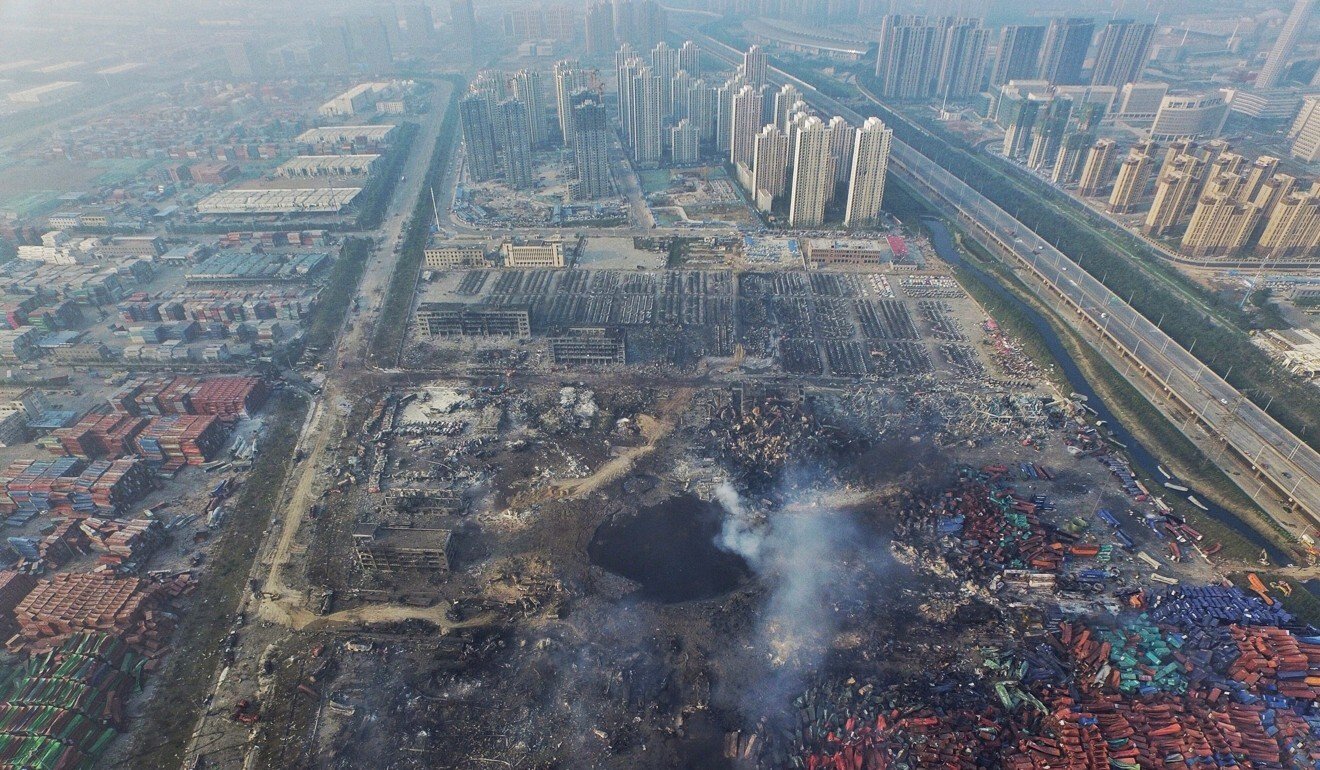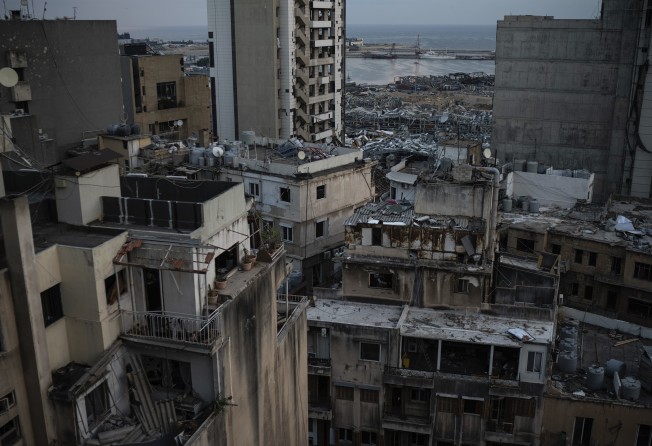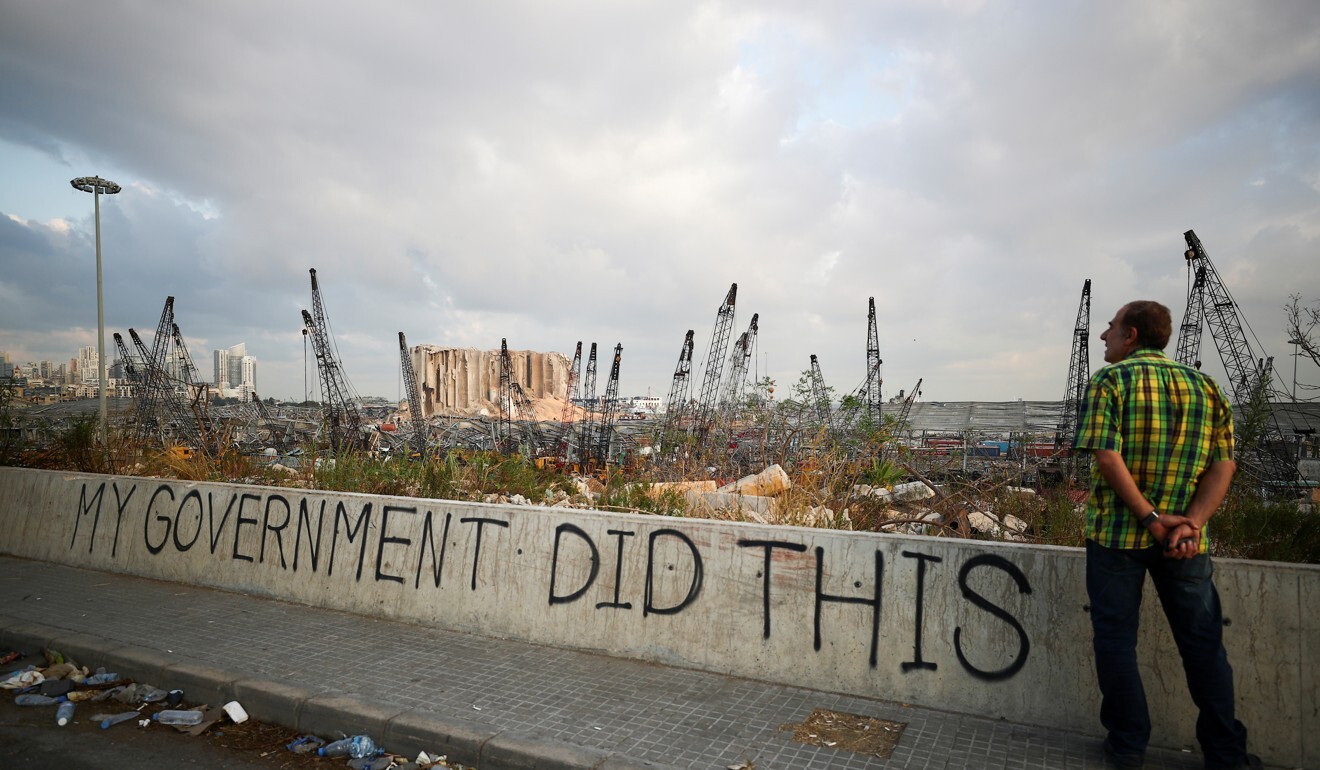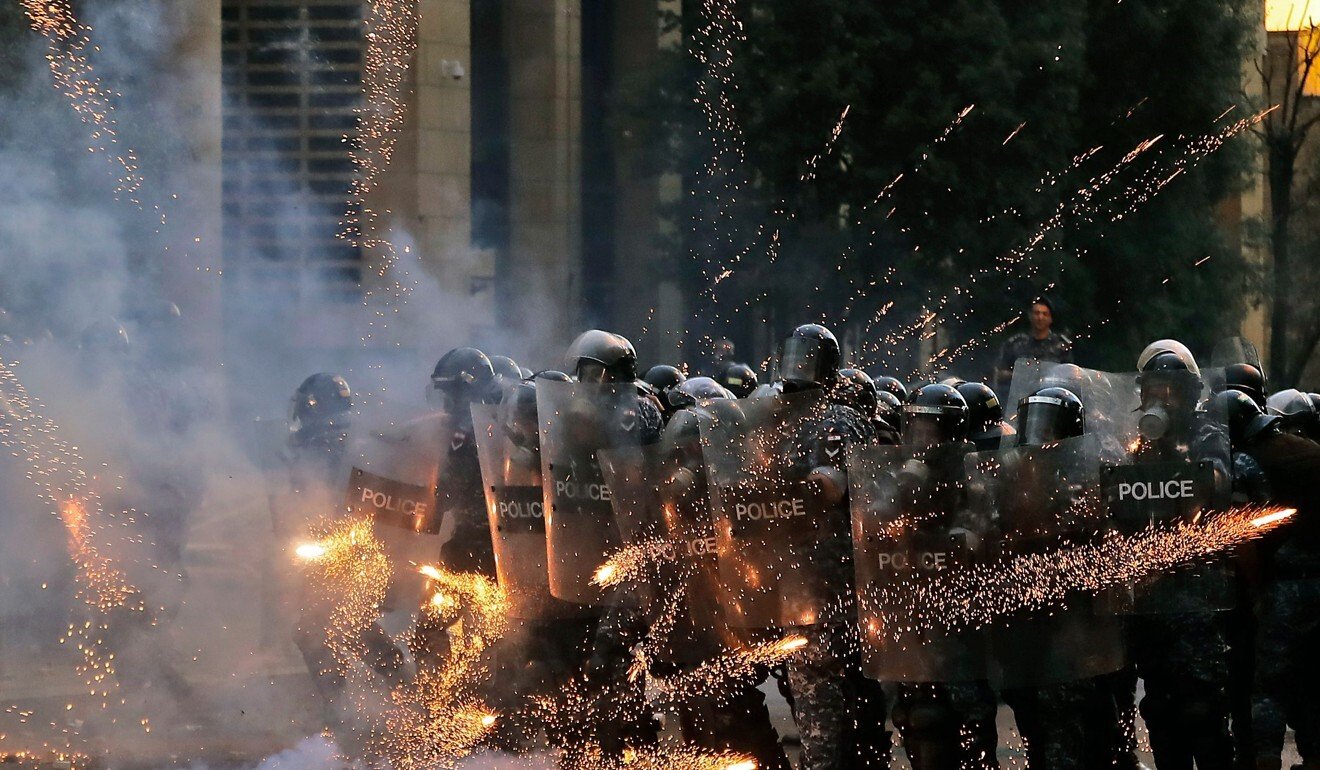
Beirut and Tianjin blasts: a toxic mix of incompetence and corruption
- In both Lebanon and China, those in power knew dangerous chemicals were being stored at a port, but did nothing – resulting in a deadly explosion
- For Lebanon, the only way to break the cycle and avert disaster is to heed the warnings, listen to the people, and retool its political system

On August 12, 2015, a series of explosions occurred at Tianjin’s port, killing 173 people. Improper storage of hazardous chemicals – the result of corruption and a lack of appropriate supervision and crisis management procedures – caused the materials to ignite.
At the time, I analysed the blast and its aftermath by comparing it to Gabriel Garcia Marquez’ Chronicle of a Death Foretold. In the novel, all the characters and even the reader were aware that the protagonist was going to be murdered. Everyone knew what was coming, but did nothing to stop it – the only exception being the doomed main character, Santiago Nasar. At Tianjin, the situation was similar: it was akin to watching a train wreck unfold in slow motion. A toxic mix of incompetence and corruption gave rise to an inevitable conclusion that surprised no one except those responsible.
The August 4 explosion in Beirut followed a similar pattern. Dangerous chemicals were stored for years without proper safeguards. Those in power knew where they were and what would happen, but this did not prevent the deaths of at least 220 people. The explosion, large enough to be felt some 250km away in Cyprus, injured 5,000 others, damaged buildings within a 10km radius, and left 300,000 homeless.

The Beirut port blast was just the latest in a series of crises that have plagued Lebanon. The country’s economy was already in the bin before the arrival of Covid-19. Its real GDP contracted by more than 5 per cent in 2019, and the World Bank is expecting it to fall by almost 11 per cent this year.
Covid-19 will make things worse. The pandemic has led to the collapse of tourism – a major pillar of Lebanon’s economy – and has triggered a steep drop in remittances from the Lebanese diaspora, a key source of funds.
Hyperinflation, the collapse of the Lebanese currency, and a lack of hard cash has created a dire situation, one that requires external rescue.
The port explosion has made a terrible situation much, much worse. The port of Beirut is the main gateway to a country that relies massively on imports: almost 75 per cent of Lebanon’s needs are imported, and more than half arrive via the Beirut port. Food, medicine and fuel supplies will thus be impacted, affecting a population already in great need. The blast also destroyed grain silos that are an important part of the country’s food reserves. A humanitarian crisis is now brewing in Lebanon.

Before this latest tragedy, the Lebanese government had requested support from the International Monetary Fund. But in March, it had already defaulted on a US$1.2 billion Eurobond payment, and additional credit has not been forthcoming despite many urgent meetings. International aid to prevent a food and health catastrophe has been promised, but this is a temporary solution.
To top everything off, political uncertainty has now gripped the country. After days of angry protests by a populace that had simply had enough of official incompetence and corruption, the country’s Cabinet resigned on Monday. Protesters have vowed to force other members of parliament to resign as well.
It will not be long before their gaze turns to the power behind the “throne”: Hezbollah. The popular rage has already given rise to explicit criticism of the militant group, a situation unimaginable just weeks before. The growing anger at Hezbollah – and, ultimately, its benefactor Iran – is going to affect the already fragile regional situation.

While Lebanese President Michel Aoun and Hezbollah leader Hassan Nasrallah have rejected calls for an international investigation, military and sectarian support may not shield them from the Lebanese people’s judgment. Prime Minister Hassan Diab’s resignation on Monday is the first crack in the sectarian power system, and more is to come. Hezbollah, sensing a shift, has already toned down its aggressive stance on the border with Israel. It remains to be seen what it will do about its alleged use of civilian areas for weapons storage.
As in Garcia Marquez’s novel, everyone can see where the trouble enveloping Lebanon will lead – except the country itself. Nothing short of a retooling of the political system will avert disaster. The writing on the wall is clear. What Lebanon now needs to do is heed the warnings and omens. Or wind up like Santiago Nasar.
The writer is Principal Research Fellow at the Middle East Institute at the National University of Singapore.